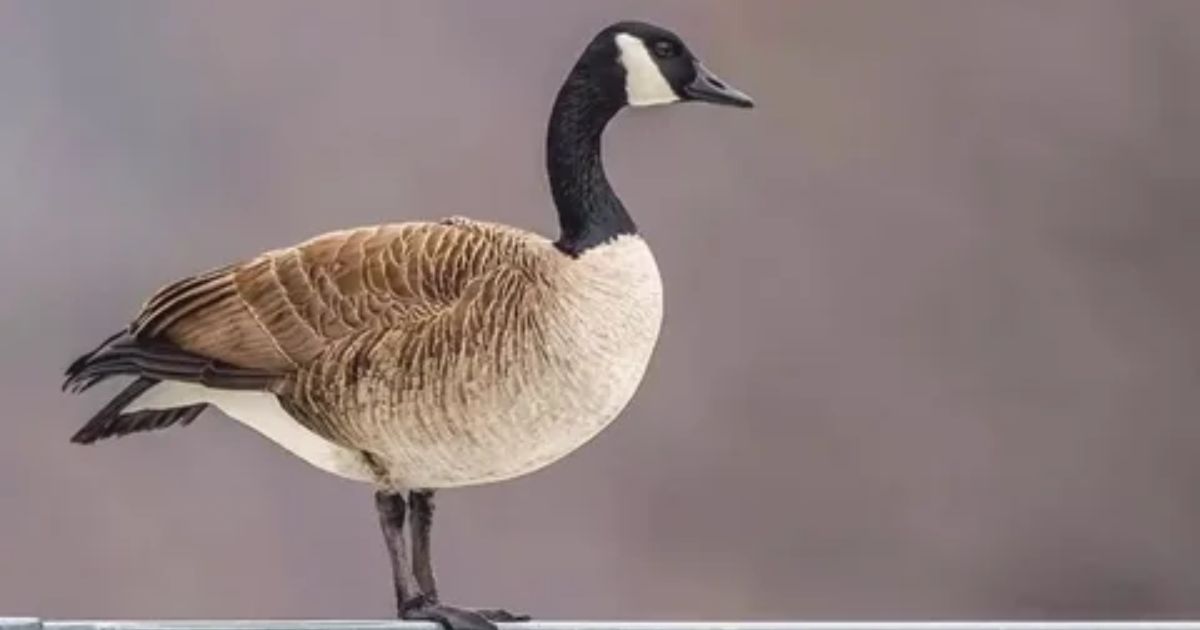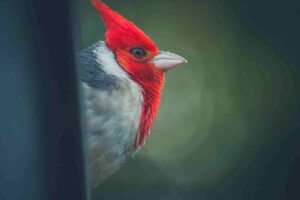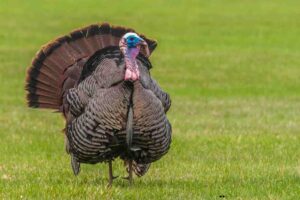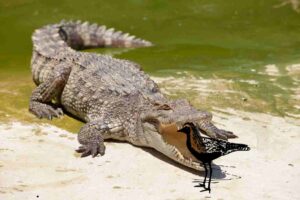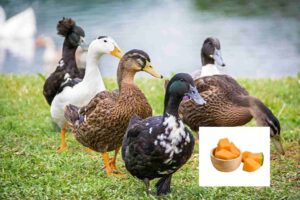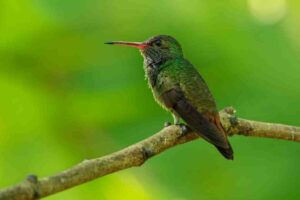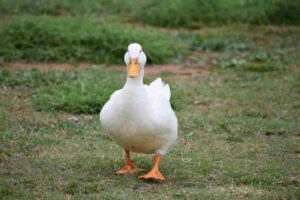Canada geese are very interesting animals because of their unique migratory patterns and complex family structures. Understanding when they reproduce and how they nest will help us understand their life cycle and how they rear their young. This article covers a number of topics related to their reproduction, such as how long it takes for geese eggs to hatch, and cover Canadian Geese Breeding Season how to incubate goose eggs, and much more.
How Long Do Geese Eggs Take to Hatch?
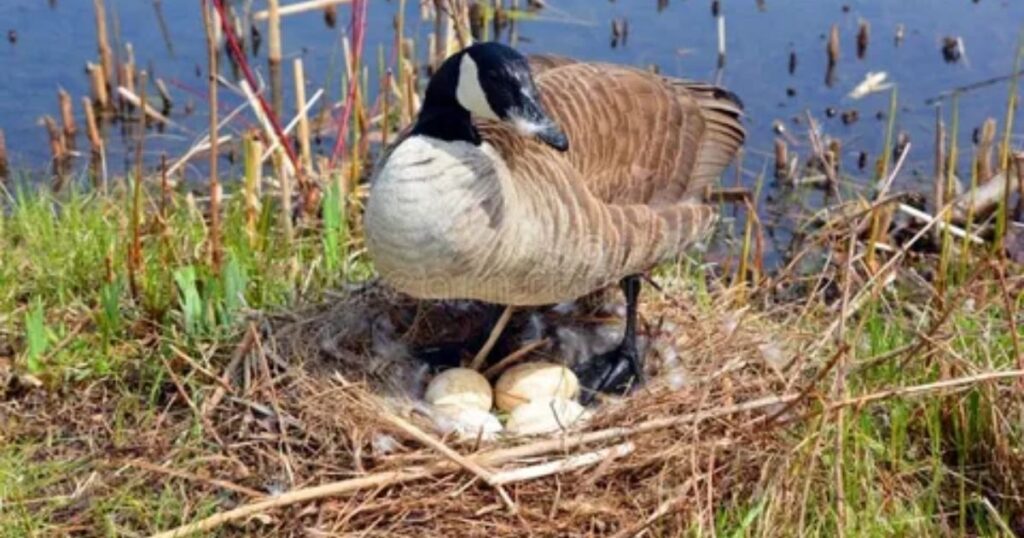
How long does it take for geese eggs to incubate? This is probably one of the most common questions asked about Canadian geese. Generally, goose eggs incubate for 28 to 30 days. This gestation period is affected by temperature and humidity. In this period, the female goose remains faithful to the nest.
She never leaves the nest because the steady temperature will determine the success of hatching. This keeps warming and safe from predators all the developing embryos inside their eggs.
- Read more about: how many crows make a murder.
How to Incubate Goose Eggs
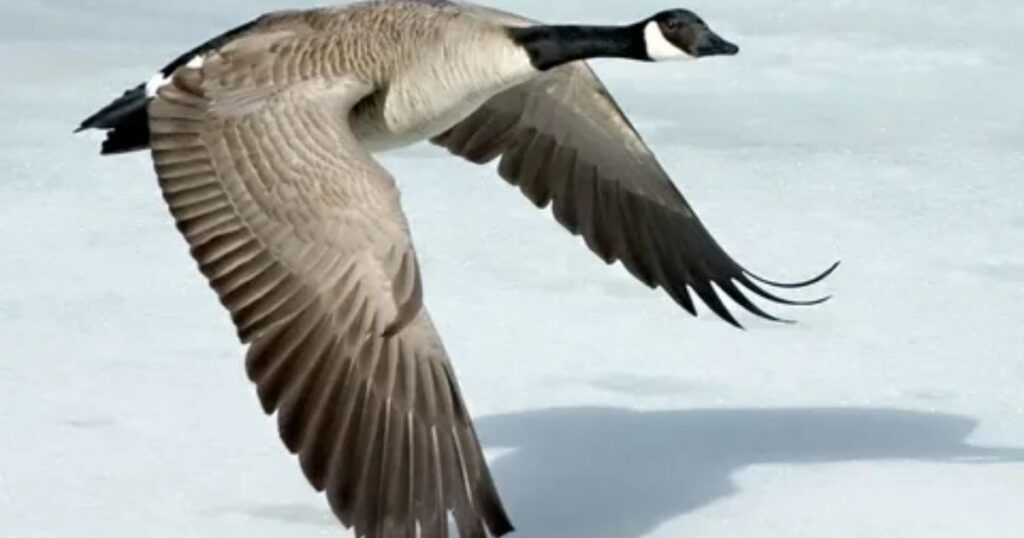
Specific processes, like in nature, have to be done in order to incubate the eggs of a goose that match the conditions provided by a female goose. There is artificial incubation, which encompasses:
- Maintain the temperature at a constant range of 99.5°F -100°F.
- Goose eggs require high humidity and is mostly required during the last period of incubation. So for the first day 50% and for the final three days before hatching at 65%–70% humidity.
- Turning the Eggs: Gently turn the eggs so that the embryo does not stick to the shell. Turning should be four to six times a day.
- Candle the Eggs: Seven to ten days into incubation, candle the eggs to inspect for development. This procedure helps determine which eggs have life.
How Long Does It Take for Geese Eggs to Hatch?
Revisiting the question of how long does it take for geese eggs to hatch, it’s essential to highlight that variations in climate and nesting conditions can slightly affect the incubation period. Warmer climates may result in slightly earlier hatching, whereas colder regions could extend the incubation by a day or two.
- Explore more info about: Do Canadian Geese Have Teeth? Unraveling the Mystery
Goose Egg Incubation Time: Key Considerations
One of the most critical life stages of the Canadian geese is the incubation period. During this period, eggs are extremely vulnerable to influences from outside. Mother geese are very cautious when it comes to their nests and dangers such as foxes and raccoons.
A hallmark of geese is their ability to repeatedly return to a particular nesting site every year. Such places are usually well-placed high or hidden with regard to water sources in such a way that they keep the eggs safe and let the goslings get easy access to food right after they hatch.
How Many Babies Do Geese Have?
With an average clutch size of about five eggs, Canadian geese typically lay four to nine eggs a year. The number of offspring for the female geese is affected by the age, health, and environmental circumstances. Larger clutches usually occur in optimal nesting locations with minimal disturbance.
Precocial means that the newly hatched goslings can walk, swim, and feed themselves very quickly after birth. Their ability to adapt is crucial to their natural existence.
When Do Geese Lay Eggs?
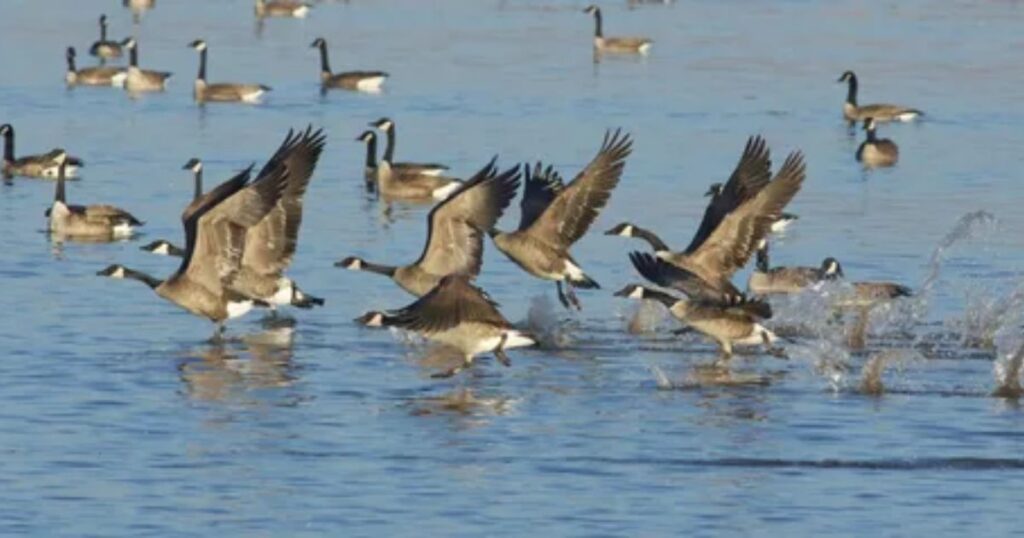
When do eggs get laid? Canadian geese choose February to April for their nesting, depending on the climate of the place. In cooler climates, geese often start to nest later during springtime, and warmer climes, they could start nesting earlier.
A few days after selecting a nesting site, females begin laying eggs. Generally, safety and the availability of water are factored in when deciding the nesting sites. After determining the location, the female starts building the nest by using twigs, mosses, and other materials that are available in the surroundings.
When Do Canadian Geese Lay Eggs?
One of the most crucial aspects of Canadian geese is that they usually lay their eggs once a year. When do Canadian geese lay eggs? Although it varies with the local climatic conditions, it’s always during the breeding season. Normally, females take seven days to complete the clutch by laying one egg every day or two.
How Long After Mating Do Geese Lay Eggs?
It only takes geese seven days or one week to start laying after mating following the elaborate courtship display. Female geese typically deposit eggs from a successful relationship in as little as seven days or a week. Generally, readiness to lay depends on factors such as health, environmental cues, and nest suitability for a bird.
How Long Are Geese Pregnant?
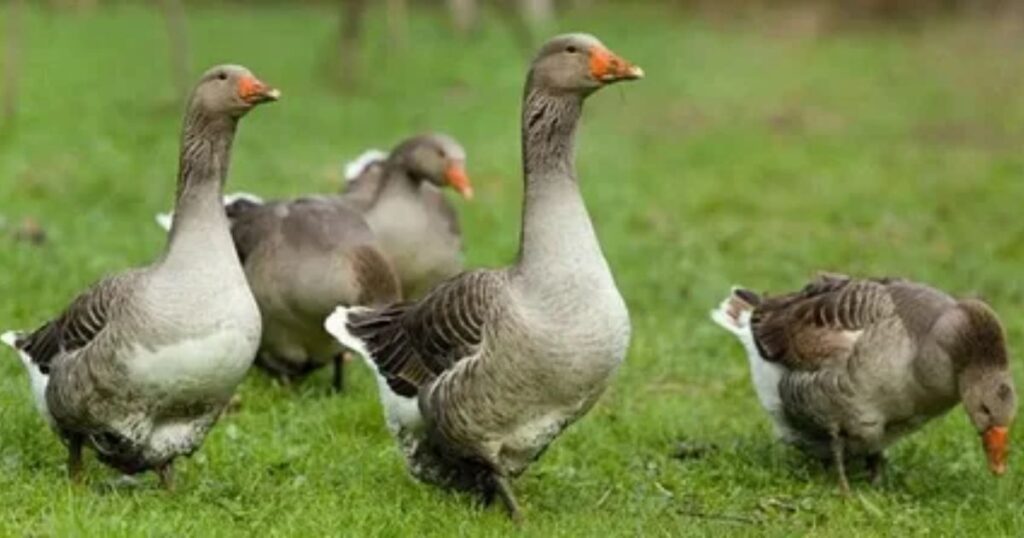
Birds are not technically “pregnant” because they lay eggs instead of giving birth to living young. But how long are geese pregnant when it comes to laying eggs? The time from mating to the first egg may be as short as ten days, depending on the female’s physical state and the extent to which she is prepared for the environment.
Post-Hatching: Life of Goslings
Soon after the goslings hatch, the parents start instructing them on how to survive. The family shifts to a brooding area, usually next to water, where they are reared with other families in a group called a crèche. In this collective method, protection against predators is greater.
During this time, the male goose or gander watches over the family as they wander about. Both parents care for and teach the goslings so that they become strong and independent before migration.
Conclusion
From the way they handle their eggs to their courtship rituals, Canadian geese exhibit some fascinating reproductive activities. Knowing how long geese eggs take to incubate, how to do it, and other details about their life cycle is a great way to learn more about these amazing birds.
The persistence and loyalty towards family members in Canadian geese keep the natural lovers enthralled whether seen in their natural habitats or being researched for conservational purposes. Many interesting traits characterize these birds, particularly concerning complicated family relationships and migratory behavior. Most of their life cycle and how they nurture their offspring can be explained by studying the breeding season and patterns of nesting.
FAQs: Canadian Geese Breeding Season
When is the breeding season for Canadian geese?
The breeding season for Canadian geese typically begins in early spring, around March to April, depending on the region and climate.
How do Canadian geese choose their mates?
Canadian geese are monogamous and usually mate for life. They choose their mates during their second year of life, based on courtship displays, vocalizations, and compatibility.
